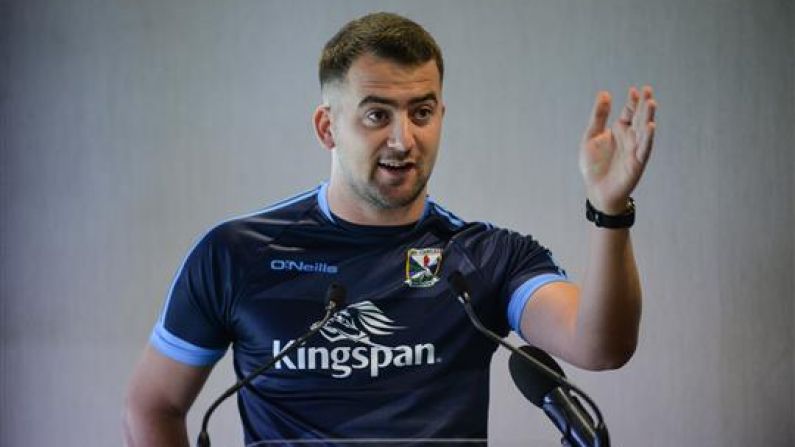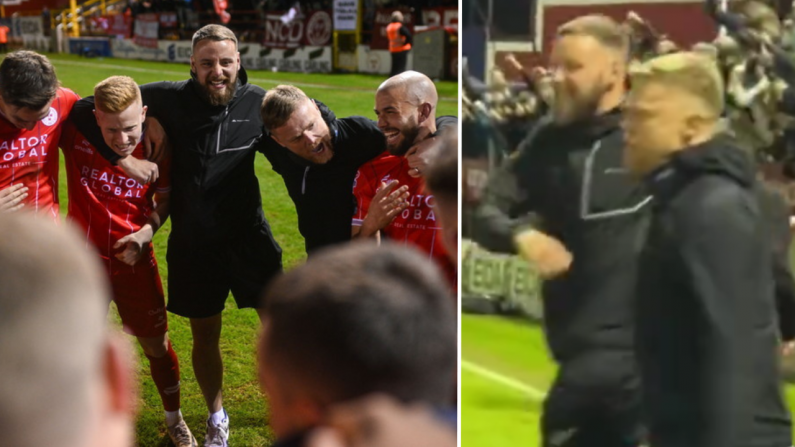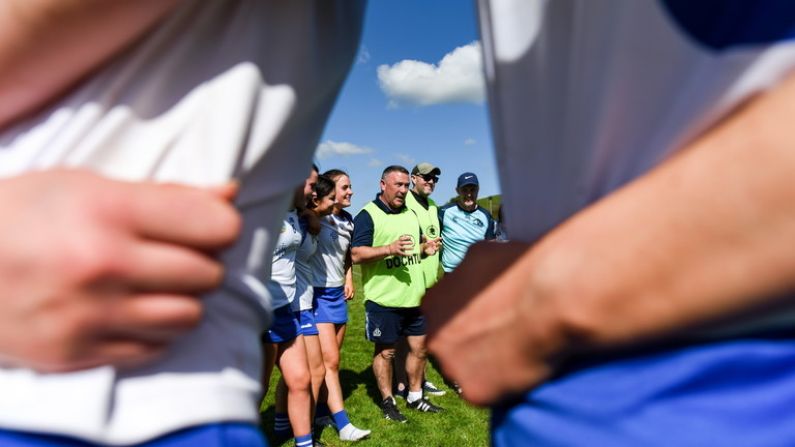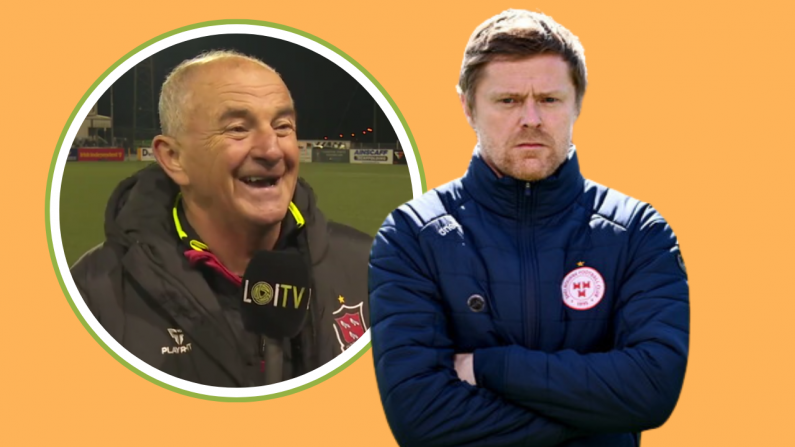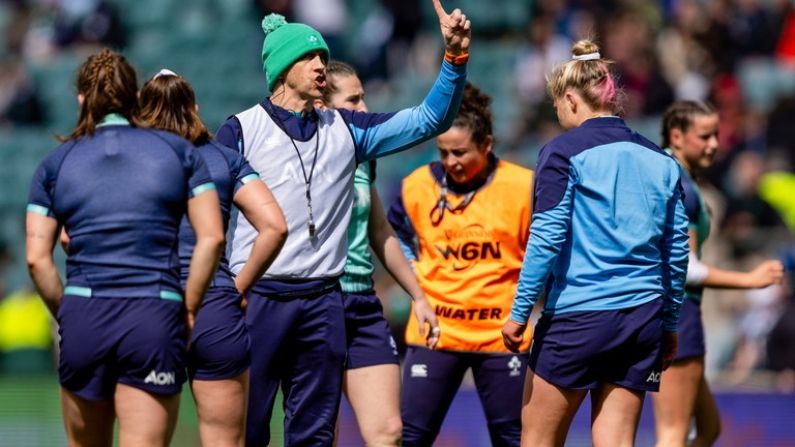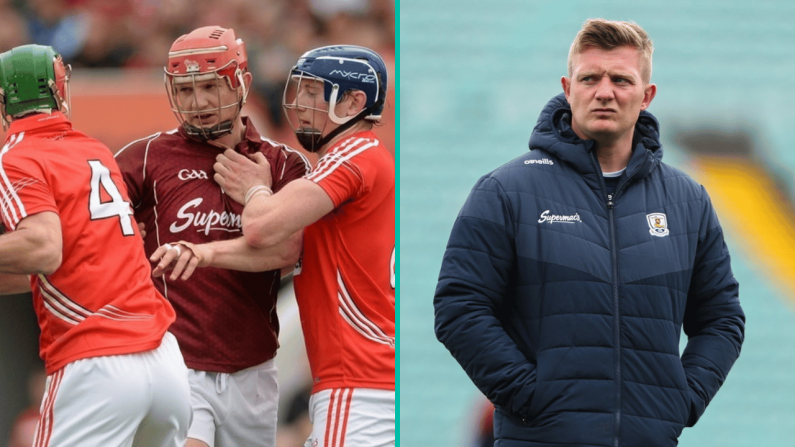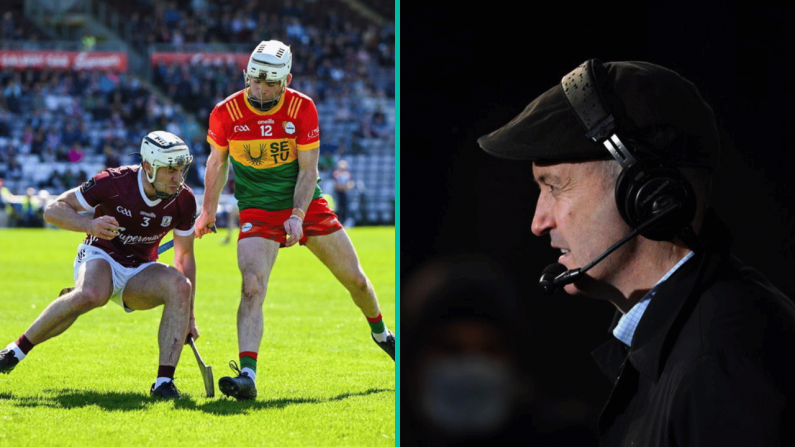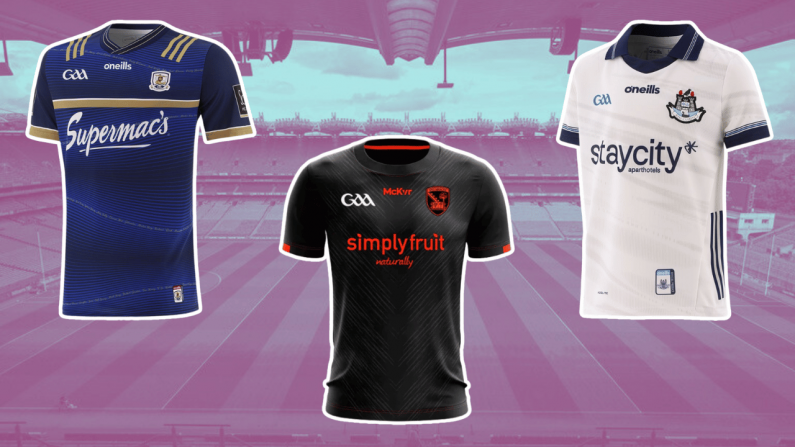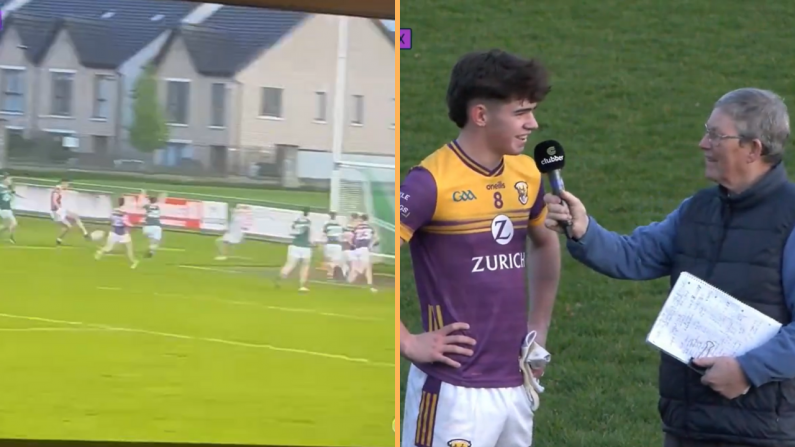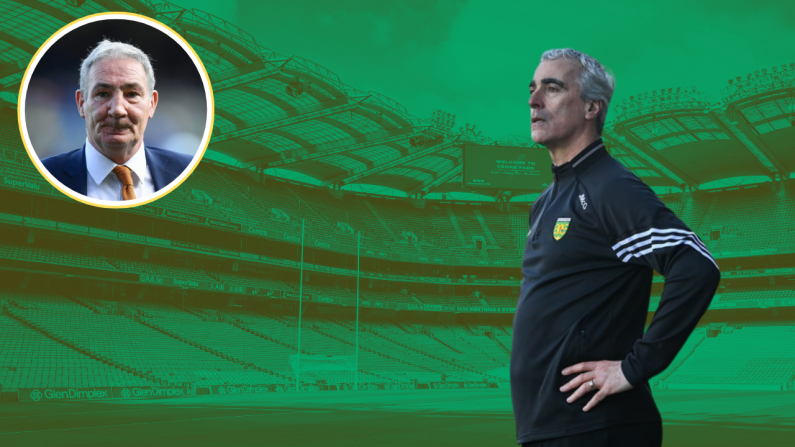The benefits of a sporting obsession are well known, but what happens when it becomes too much?
Alan O'Mara knows the danger of an all-consuming obsession. O'Mara is a mental health advocate, and has recently founded his own organisation for mental health entitled RealTalks. He is also a journalist, movie fan and goalkeeper.
In 2011, however, if you asked Alan O'Mara who he was, there would be one solitary answer: Cavan goalkeeper.
***
O'Mara is one of the most remarkable men in the GAA. He sat his Leaving Cert at 16, and at 17, was the full-time Sports Editor of The Cavan Post following a fairly successful internship and the sudden availability of the job. At 22, he published 4,000 words in the Sunday Independent detailing his slide into depression and thoughts of suicide, becoming one of the first mental health advocates in the GAA.
And now, at 25, O'Mara has published his first book entitled The Best is Yet to Come, documenting his journey to overcome depression, and what he learned about himself in the process.
O'Mara wrote the book himself, during a three-month break in San Francisco.
I found the process of writing extremely cathartic. We can all get caught up in our own bubble, so I needed to take time to relect on it. While tapping at the keyboard, there were a few lightbulb moments when I sat back and said ‘Oh, that’s what was going on’.
The book can help a lot of people, people can relate to parts of it. I learned loads about myself.
I’m in a better place understanding as to who I am.
***
In the first half of 2011, O'Mara had achieved what many believe to be the primary point of life: he had identified his ambition and fulfilled it. He recovered from injury through the winter of 2010 to earn his place in goal with the Cavan under-21s, and won an Ulster title.
This was no mean achievement: it was a championship in which they overcame a Fermanagh side that featured Tomas Corrigan and Sean Quigley and a Donegal side coached by Jim McGuinness, featuring several of the players who would go on to win a senior All-Ireland in the aftermath.
Cavan would ultimately lose the All-Ireland final, played in Croke Park to help facilitate the enormous Cavan following the team had engendered.
Life afterwards, however, proved empty. O'Mara started college in Dublin in September, but things weren't right.
In the aftermath of the All-Ireland final...I was angry at football. In hindsight, football was the glue that held me together. When that finished, the cracks began appearing.
I began to slide. The Cavan senior set-up wasn't right, and I began to question where my motivation had gone. But I didn't answer that question. Instead, I did what most people in college do: I went out drinking to feel better. And sure, you feel better for a couple of hours, but when you wake up, you realise that 'I'm back where I started'.
I did all the things you're not meant to do. When you do that regularly, you're taking one step forward to take two steps back. If you do that repeatedly, you don't need to have done honours Maths to realise you're losing a lot of yardage the other way.
O'Mara consistently describes feeling "lost" in a time of major turmoil in his life: he had started college, hs grandfather had passed away, and his long-term relationship had broken down. Then, when football became unenjoyable, he lost the glue.
The artifice of alcohol hit home in one moment in Copper Face Jacks. Standing on the edge of the dancefloor, O'Mara was suddenly washed over with a kind of grotesque paranoia, which he realises now was the first stages of a panic attack. Feeling that everyone was watching him, O'Mara rushed to the bathroom, locked himself into a cubicle and wept, typing into his phone in an attempt to make sense of what was happening. He returned to his friends with tears squashed deep and mask refixed twenty minutes later.
O'Mara was sliding into depression, but it took him some time to come to terms with it. He admits that "I wasn't ignoring advice, it just wasn't there":
There were times, lying in bed, that I Googled 'am I depressed', but when I didn’t really like what was on the page, I'd open up an episode of Game of Thrones and forget about it for an hour or two. But I was just kicking a can down the road.
In the book, he speaks with raw honesty of the mental torture to which he was subject to. In the lead up to Christmas, he admits that he was having suicidal thoughts. Many were fleeting, the brief thrust of a thought that was soon quashed by rational thought. As time went by, however, these warring voices in his head became louder, and he recalls the moment it all came to a head, while driving home to Cavan from Dublin.
While driving down the motorway, the appalling binary debate in his head took over once again, this time with more force than ever before. He writes of how a part of him told him to steer his car into the concrete wall dividing cars in opposite directions. O'Mara says that the only thought which prevented him from veering right was an image of his parents mourning at his funeral. This, he describes, was rock bottom:
The image of my parents hit home. I had some loose suicidal thoughts over the couple of weeks before, but I sort of just ignored it... I knew something was going on, but that was the one which hit me with a sucker punch. I rolled the window down, letting air hit my face saying : 'just get home...just get home...that was the most important day of my life. It was surreal.. nobody wants to be there.I knew there and then that I needed to get help.
Following a discussion with his parents O'Mara reached out to the GPA's counselling service. The process of opening up to his counsellor proved to be O'Mara's saving grace, as it made him reassess his relationship with Gaelic football. Today, O'Mara freely admits his relationship with the sport had become "toxic", that his mood was tied entirely to football, a capricious means of fulfillment at the best of times:
During the football season, you get caught up in a bubble. I had to get an understanding of my rship with the game itself. It was borderline toxic at times. If Cavan were going well, and I was playing well, things were going Ok. If things weren’t, it was rocky.
When things weren’t going well, my only thought was ‘how can I make football go well’, and that’s terrible rationale. It was just a crutch...so much of my identity had been wrapped up in that team, in that jersey, something I really had to chip away at.
The forming of identity is one of the GAA's greatest strengths, but in O'Mara's case, Cavan GAA was his identity. In the process of writing the book and the interrogation of himself that went with it, O'Mara kept coming back to the question: Why Cavan? It became a question of identity.
O'Mara was in fact born in Dublin, and moved to Cavan with his parents when he was 12. It's a daunting process, to fit in to a new school, and the very first question O'Mara was asked when he first sat down in his new class was: "Do you like football?"
How do I fit in here? Football gave me a very simple in. When I got that first question I thought: Oh, thank fuck! The guy who asked the question is still one of my best friends. Look, when you’re 12, that wasn’t a conscious decision. But looking back now, one of the questions I asked myself [while writing the book] was ‘Why am I so pasionate about Cavan football? My parents are both from Dublin, there’d never have been any great love for GAA. When I was writing this book, it went back to that.
I always dreamed of being a professional soccer player, of being an elite athlete, that was always there for me. But why is it Cavan, why is Cavan so much of this? It was really a Cavan thing for me. That’s the conclusion I came to.
O'Mara loved football - he still believes in its potential, describing it as both enlightening and empowering, allowing him to come out of his shell as a shy teenager - but it soon became his identity. Having been bullied in school in Dublin, O'Mara playing football in Cavan was given a social standing and instant respect.
While this worked to fit in, the welding of identity to football soon became problematic, and while O'Mara now believes that identity should come from four or five different pillars, football loomed the largest:
Your life needs four or five pillars: be they family, work, friends, hobbies, sport. With me, I had them, but football loomed over them like a 60-foot skyscraper, soaring way above everything else.
This was the strength of counselling: it helped O'Mara realise who he was, that he had an identity beyond solely football. He stepped away from football in 2012, and left his job at Croke Park. He returned to play with Cavan in 2013, and on the field, it was a relatively successful year: O'Mara made his senior championship debut and played at Croke Park twice. Yet still he wasn't happy, and in the grip of depression once again, he bravely wrote 4,000 words in the Sunday Independent on his struggle with depression. It was the first many of his Cavan teammates ever heard of his struggle.
The process of writing and sharing proved embalming, and O'Mara once again stepped away from inter-county football after 2013, taking up a role with mental health advocates SpunOut.ie.
Today, football plays a healthier role in Alan O'Mara's life. He returned to the Cavan panel earlier this year, and admits that he handled the situation of not playing better than he ever had previously:
In previous years, not playing would have gnawed at me, torn me apart. But this year - while I was still pissed off about not playing - it wasn’t a search for identity, or meaning. I know that sounds deep, but that’s the way it was.
I didn’t want to play football to make me happy, but be happy playing football.
The Best is Yet to Come by Alan O'Mara is published by Hachette, and is released on September 1st.
Real Talks is a dynamic organisation founded by Alan O'Mara to facilitate discussions on the importance of mental health, effective communication, personal leadership, and resilience. They specialise in sparking impactful and measurable 'real talks' within the workplace, schools, sports teams and in other communities. Get in touch via the contact form on the website or email [email protected].

